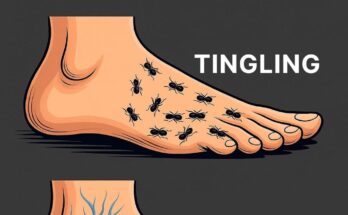In a world filled with diet fads and quick-fix health solutions, intermittent fasting (IF) has emerged as one of the most talked-about and researched eating patterns of the 21st century. Unlike traditional diets that focus on what you eat, intermittent fasting focuses on when you eat.
Celebrities, athletes, and health experts have praised it for its supposed benefits — from weight loss and improved focus to longer life spans. But is intermittent fasting truly backed by science, or is it just another fleeting health trend?
Let’s explore the science, benefits, potential risks, and myths surrounding intermittent fasting to determine whether it lives up to the hype.
1. What Is Intermittent Fasting?
Intermittent fasting is not a diet but an eating pattern that alternates between periods of eating and fasting. During fasting periods, you restrict calorie intake entirely or significantly reduce it, allowing your body to use stored energy more efficiently.
The concept isn’t new. Humans have fasted for thousands of years — whether for religious, cultural, or survival reasons. However, modern intermittent fasting has become popular due to its scientific claims and simplicity.
Common Types of Intermittent Fasting
-
The 16/8 Method
You fast for 16 hours and eat within an 8-hour window — for example, eating between 12 p.m. and 8 p.m. -
The 5:2 Diet
You eat normally five days a week and consume only about 500–600 calories on the other two non-consecutive days. -
Eat-Stop-Eat
Involves fasting for 24 hours once or twice a week. -
Alternate-Day Fasting
Alternating between days of normal eating and days of restricted calorie intake or complete fasting. -
The Warrior Diet
You eat small amounts of raw fruits and vegetables during the day and have one large meal in the evening.
Each method offers flexibility, allowing individuals to choose what fits their lifestyle and goals.
2. The Science Behind Intermittent Fasting
The human body is remarkably adaptable. When you fast, a series of biological processes occur that can have powerful effects on metabolism, hormone regulation, and cellular repair.
A. Hormonal Changes and Fat Burning
During fasting, insulin levels drop, signaling the body to begin burning stored fat for energy instead of relying on glucose from food. Lower insulin levels make it easier to access fat stores, which is why intermittent fasting often promotes weight loss.
Simultaneously, the body increases human growth hormone (HGH) levels — a hormone that helps preserve muscle mass and enhances fat metabolism.
B. Cellular Repair and Autophagy
One of the most fascinating aspects of fasting is the activation of autophagy — a natural cellular cleaning process. During autophagy, the body breaks down and removes damaged cells, proteins, and toxins, allowing for cellular renewal.
This process plays a crucial role in disease prevention and longevity, helping protect against conditions like cancer, neurodegeneration, and metabolic disorders.
C. Gene Expression and Longevity
Fasting influences genes related to longevity and stress resistance. Studies on animals show that intermittent fasting can increase lifespan by improving metabolic efficiency and reducing oxidative stress — though human data is still emerging.
D. Brain Health
Intermittent fasting has been shown to stimulate the production of brain-derived neurotrophic factor (BDNF), a protein that supports neuron growth and cognitive function. Increased BDNF levels are linked to better memory, sharper focus, and protection against neurodegenerative diseases like Alzheimer’s.
Additionally, fasting helps reduce inflammation and oxidative stress in the brain, both of which play a role in cognitive decline.
3. Health Benefits of Intermittent Fasting
While research is ongoing, a growing body of scientific evidence suggests intermittent fasting offers a range of health benefits when done correctly.
A. Weight Loss and Fat Reduction
Intermittent fasting can be an effective strategy for weight management. By shortening the eating window, most people naturally consume fewer calories without consciously restricting food types.
Lower insulin levels and increased fat oxidation during fasting periods encourage the body to burn stored fat, particularly visceral fat (the harmful fat around the abdomen).
B. Improved Insulin Sensitivity
Fasting helps stabilize blood sugar by improving insulin sensitivity. This means the body uses insulin more efficiently, reducing the risk of type 2 diabetes.
Studies show that intermittent fasting can lower fasting glucose levels and hemoglobin A1C, especially in overweight individuals or those with insulin resistance.
C. Reduced Inflammation
Chronic inflammation is a root cause of many diseases, including heart disease, cancer, and arthritis. Research indicates that fasting reduces inflammatory markers in the body, helping promote overall health and recovery.
D. Heart Health
Intermittent fasting may improve several risk factors for cardiovascular disease, including:
-
Lower blood pressure
-
Reduced triglycerides
-
Decreased LDL (“bad”) cholesterol
-
Improved blood sugar control
These changes collectively promote better heart health and circulation.
E. Brain Function and Mental Clarity
Many people who practice intermittent fasting report improved mental focus and clarity. This is partly because fasting reduces glucose fluctuations and increases production of ketones — an alternative energy source for the brain that enhances cognitive performance.
Regular fasting may also protect against cognitive decline and improve memory retention.
F. Longevity and Aging
Animal studies consistently show that intermittent fasting can extend lifespan. While direct evidence in humans is still limited, the mechanisms — including autophagy, reduced inflammation, and better metabolic function — suggest a similar potential.
4. Common Misconceptions About Intermittent Fasting
Like most health trends, intermittent fasting is surrounded by myths and misunderstandings. Let’s clear up a few of the biggest ones.
Myth 1: Fasting Slows Down Metabolism
Contrary to popular belief, short-term fasting (under 48 hours) does not slow metabolism — it may actually boost it slightly by increasing norepinephrine, a hormone that supports fat burning.
Metabolic slowdown typically occurs only with long-term calorie deprivation, not structured intermittent fasting.
Myth 2: You Lose Muscle When Fasting
When done properly and combined with adequate protein intake during eating windows, intermittent fasting preserves muscle mass. Elevated levels of growth hormone during fasting also protect lean muscle tissue while burning fat.
Myth 3: Fasting Means Starvation
Fasting is a controlled and intentional pause in eating, not starvation. Starvation is involuntary and harmful, while fasting can be a mindful, structured approach to enhance body function.
Myth 4: Intermittent Fasting Is Only for Weight Loss
While weight loss is a major benefit, fasting also supports brain health, improves insulin function, and may help prevent chronic disease — making it beneficial even for people at a healthy weight.
5. Potential Risks and Who Should Be Cautious
Though intermittent fasting can offer many benefits, it isn’t suitable for everyone. It’s important to approach it with awareness and consideration of individual needs.
A. Possible Side Effects
-
Hunger and fatigue during the adjustment period
-
Irritability or mood swings
-
Headaches or dizziness, especially if dehydrated
-
Sleep disruption for some people when fasting late
These symptoms typically fade after the body adapts to the new rhythm.
B. Who Should Avoid Intermittent Fasting
Intermittent fasting is not recommended for:
-
Pregnant or breastfeeding women
-
People with a history of eating disorders
-
Individuals with type 1 diabetes or severe hypoglycemia
-
Those taking medications that must be taken with food
-
Children and teenagers still in their growth phase
Anyone considering fasting should consult a healthcare professional, especially if managing chronic conditions.
6. Practical Tips for Successful Intermittent Fasting
If you’re considering trying intermittent fasting, small adjustments can make the transition easier and more sustainable.
-
Start gradually: Begin with a 12-hour fast and slowly extend to 14 or 16 hours.
-
Stay hydrated: Drink water, herbal tea, or black coffee during fasting periods.
-
Prioritize nutrient-dense foods: Focus on whole foods — lean proteins, healthy fats, vegetables, and whole grains — during eating windows.
-
Avoid overeating: Don’t use the eating window as an excuse to binge.
-
Listen to your body: If you feel weak or dizzy, shorten the fasting period.
-
Get enough sleep: Rest supports hormonal balance and recovery during fasting.
Fasting works best when combined with healthy lifestyle habits like regular exercise, stress management, and adequate sleep.
7. Is Intermittent Fasting a Trend or a Science-Backed Strategy?
The popularity of intermittent fasting might make it seem like just another passing trend, but the scientific evidence supporting its benefits continues to grow.
Unlike many fad diets that promise unrealistic results, intermittent fasting is rooted in biological and evolutionary logic. It aligns with the body’s natural rhythm of feast and rest — something our ancestors experienced regularly due to food scarcity.
That said, intermittent fasting is not a miracle cure. Its success depends on overall diet quality, consistency, and lifestyle. Fasting while eating processed, high-sugar foods during eating windows will undermine its benefits.
8. The Balanced Perspective
Intermittent fasting is both science and strategy — but not for everyone. For some, it provides a sense of discipline, mental clarity, and control over eating habits. For others, it can feel restrictive or lead to overeating.
The key is personalization. The best fasting method (or any diet) is the one you can maintain long term without harming your relationship with food or health.
9. Conclusion: A Return to Simplicity
At its core, intermittent fasting is not a modern invention — it’s a return to a more natural rhythm of eating that allows the body to rest, repair, and rejuvenate.
When practiced mindfully, intermittent fasting can enhance energy, support metabolic health, and promote longevity. Yet it’s essential to approach it as a lifestyle adjustment, not a quick fix.
Science shows that intermittent fasting offers real, measurable benefits — but those benefits come from consistency, balance, and mindfulness, not extremes.
In the end, intermittent fasting may not just be a passing trend — it’s a scientifically supported approach to eating that helps reconnect us with the body’s innate intelligence, reminding us that sometimes, less truly is more.



